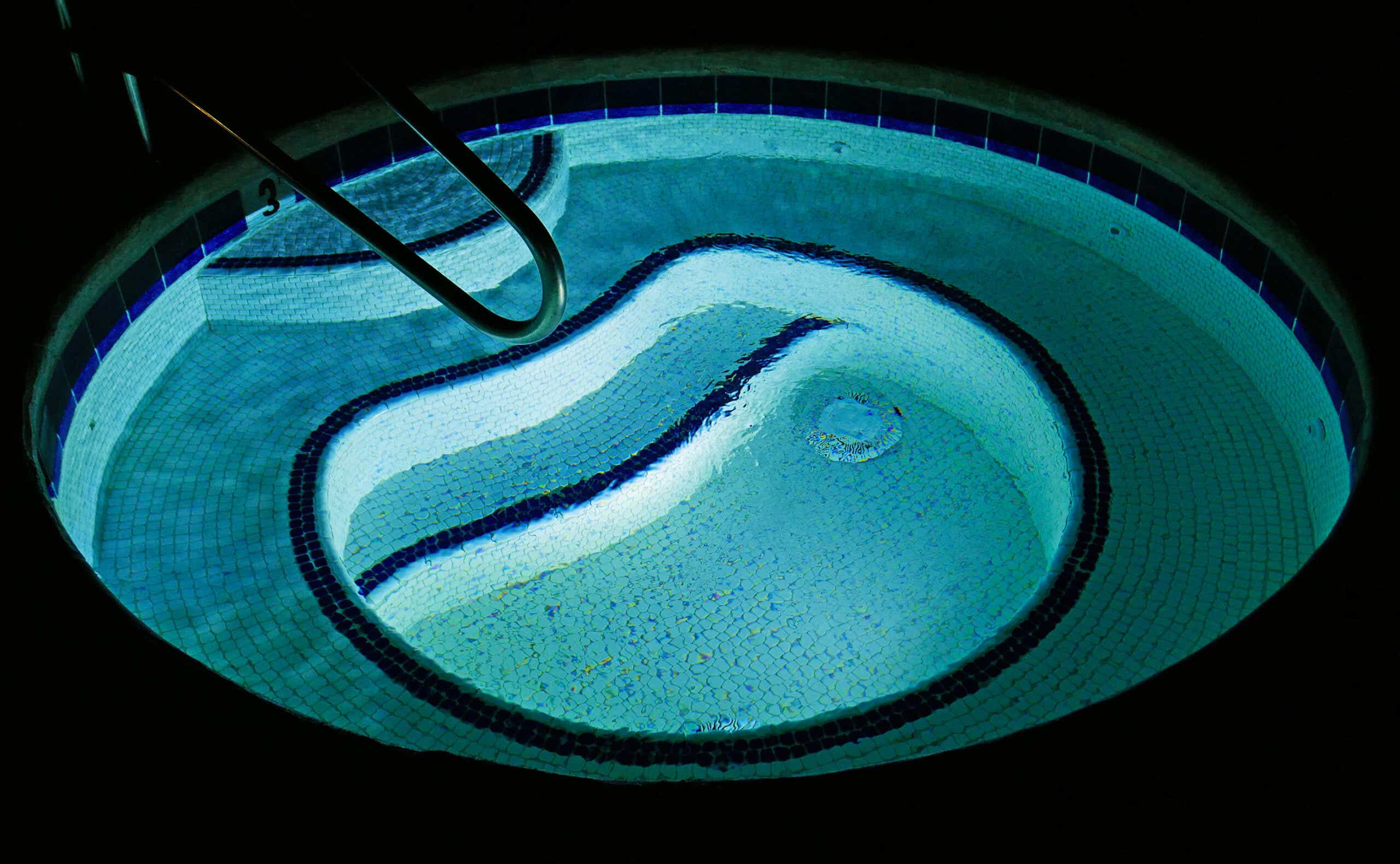Who doesn’t enjoy a soak in a jacuzzi? Slipping into steaming hot water and letting the pressure of the jets knead that kink in your lower back is one of life’s small pleasures. And studies show that it has some health benefits — from easing muscle pain to stress relief — but it comes with risks, too.
Why are we talking about this now? Sadly, jacuzzi safety has been a topic of conversation since beloved Friends star, Matthew Perry, was found unresponsive in his tub over the weekend. Just days before his passing, he posted a photo of himself half submerged in the corner of his home spa, with the caption, "Oh, so warm water swirling around makes you feel good?"
The 54-year-old's official cause of death hasn't been released, but it got us thinking about the safety of these luxurious home accessories. Experts say there are precautions everyone should take before taking a dip in a hot tub.
Hot tubs and blood pressure
People with a history of high blood pressure, low blood pressure, or serious cardiac issues may want to steer clear of the jacuzzi. Why? Integrative medicine physician Irina Todorov, M.D., tells the Cleveland Clinic that it has to do with how the heart responds to heat.
“As your body heats up, your blood pressure drops,” she says. “Your heart responds by beating faster, like what you might experience with exercise.”
That may place added stress on your heart, or cause your blood pressure to fall too low, causing dizziness or even fainting. That’s why Dr. Todorov says, “if your provider has told you to avoid strenuous activity, skip the hot tub too.”
Hot tubs and pregnancy
According to the Centers for Disease Control, children under 5 should not be in the jacuzzi, and pregnant women — particularly those in the first trimester — are encouraged to talk to their doctors before using one. The hormonal changes pregnant women experience may make women feel warmer and could lead to them fainting, the U.K.'s National Health Service explains. Plus, a significant rise in core body temperature may harm an early pregnancy, per the agency.
Hot tubs and alcohol
Enjoying a mai tai in a jacuzzi may sound like an ideal way to unwind, but doctors say that in combination with the intense heat, having alcohol in your system can quickly lower blood pressure to sometimes dangerous levels. Of course, alcohol also impairs judgment, making it harder to tell when it's time to get out.
Hot tubs and drugs
Experts also warn about using drugs — even over-the-counter or prescription medications — before or while taking a warm soak.
The CDC says that drugs like those prescribed for depression, anxiety, and bipolar disorder may also increase drowning risk. And people on medications that cause drowsiness, like antihistamines, should also be cautious about taking a steaming dip, Dr. Todorov says, because they run the risk of falling asleep and drowning.
Hot tub germs
There’s another concern you should keep in mind regarding jacuzzis: The pretty gross reality that they can be teeming with germs. That’s why the CDC says folks should avoid swallowing or getting any hot tub water in their mouths.
The parasite Cryptosporidium, more commonly known as “Crypto,” makes its way into hot tubs via (gag) fecal matter and can survive a full week even in chlorinated water. The CDC says that swallowing even a tiny amount of contaminated water can make you sick, causing digestive issues and diarrhea. The bacteria Pseudomonas aeruginosa also thrives in hot tubs, especially those made of wood, and can lead to an infection of the skin around the hair follicles. This can result in itchiness or a dark red rash, sometimes called hot tub folliculitis.
There’s also Legionnaires’ to worry about: Hot tubs have been associated with outbreaks of the disease, a type of lung infection caused by the bacteria Legionella. These infections can lead to coughing, a shortness of breath, fever, and other symptoms, and can be fatal. Nearly 10,000 cases are reported a year, and it’s estimated that one in 10 of those afflicted die from the disease.
It's safe to say if you've got a weakened immune system or check any of the other boxes listed above, you're better off hitting the showers.









